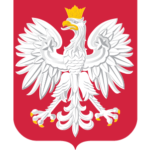Extramural mode
- The Act of 20 July 2018 – Act on Higher Education and Science. Journal of Laws 2018 item 1668 – link
- The resolution no. 433/2019 of 24 September 2019 of the Senate of the University of Silesia (US) on the procedure for awarding a doctoral degree – link
- The resolution no. 435/2019 of 24 September 2019 of the Senate of the University of Silesia (US) on the procedure for awarding a doctoral degree and associate professor degree conducted in an extramural mode and exemption from the fee – link
The extramural mode resembles the so-called free-standing mode. In contrast to doctoral education, this mode excludes the structured learning phase, and thus the associated methods of verification of learning outcomes. For this reason, this mode considers the additional forms of verification of learning outcomes at level 8 of the Polish Qualification Framework (PRK) for candidates applying for the award of the doctoral degree, as defined by the doctoral subject.
The procedure will be initiated at the request of a person wishing to obtain a doctoral degree.
An applicant for an extramural doctoral degree will pay a fee for the conduct of the proceedings in that case.
The Rector, at the request of the employees of the University of Silesia who are not academic staff, may exempt fully from the fee for conducting the proceedings for the award of a doctoral degree.
An applicant for a doctoral degree who has not been educated in a doctoral school will, before the initiation of the procedure, apply to the competent authority for the appointment of a supervisor.
- The proceedings for the award of a doctoral degree will be instituted at the request of a person who fulfils certain requirements:
1) holds a master’s degree, an engineer’s degree or an equivalent, or holds a diploma referred to in Article 326, paragraph 2, point 2 or in Article 327, paragraph 2 that gives the right to apply for a doctoral degree in the country in whose higher education system the higher education institution which awarded the degree operates;
2) has achieved the learning outcomes for the qualification at level 8 of the Polish Qualification Framework (PRK), whereby the learning outcomes for the knowledge of a modern foreign language are confirmed by a certificate or a diploma that certifies the knowledge of that language at a proficiency level of at least B2;
3) has at least:
- a) 1 scientific article published in a scientific journal or in peer-reviewed materials from an international conference, which in the year of publication of the article in its final form, were included in the list drawn up in accordance with the regulations issued pursuant to Article 267, paragraph 2, point 2 (B) of the Act on Higher Education and Science, or
- b)1 scientific monograph published by a publishing house which, in the year of publication of the monograph in its final form, was included in the list drawn up in accordance with the regulations issued pursuant to Article 267, paragraph 2, point 2 (a) of the Act on Higher Education and Science (PSWN) or a chapter in such a monograph, or
- c) an artistic work of major importance
In proceedings initiated until 31 December 2020, the minimum output will also include scientific articles published in scientific journals or peer-reviewed proceedings of international conferences included in the ministerial list of scientific journals, even if the article was published before the date of publication of this list. The articles published before 1 January 2019 in scientific journals that were included in list A or C of the current ministerial list of scientific journals or were included in part B of this list will also be counted, while in the case of list B, only scientific articles that were awarded at least 10 points for publication will be counted.
- An applicant will attach to the application:
1) a copy of the document that confirms of his/her professional title;
2) a detailed outline of a doctoral thesis;
3) a list of his or her scientific work, creative professional work or artistic achievement together with a record of this achievement on an electronic medium appropriate to the type of work and documentation of its public presentation as well as information on his or her activity of popularising science or art;
4) information on the progress of the applicant’s doctoral or post-doctoral studies if the applicant has already been the subject of such studies or pursued a doctoral dissertation in the past;
5) information on the discipline or field in which the thesis is to be qualified;
6) a written consent of the candidate’s supervisor;
7) information about the joint doctoral programme if such a programme is to be carried out.
- The applicant referred to in the paragraph 1 who is a beneficiary of the “Diamond Grant” programme will attach a copy of a document confirming his or her status to the application.
- A competent authority may interview the applicant or candidate supervisor before adopting a resolution on the appointment of the supervisor.
5. The competent authority will appoint or refuse the supervisor indicated in the application. Reasons must be given for any refusal to appoint a supervisor
1) a thesis and a favourable opinion from the supervisor;
2) a summary of a doctoral thesis in English and in case of a doctoral thesis prepared in a foreign language, also a summary in Polish. If a thesis is not a written work, its description in Polish and English will be attached;
3) a certificate or a diploma certifying knowledge of a modern foreign language of at least B2 level, as specified in separate regulations
- Reviewers will be appointed by a competent authority from among candidates submitted, representing a given scientific discipline or the related discipline, and in the case of a doctorate in the field-specific doctoral dissertations – that field or a related field.
- Candidates for reviewers may be proposed to a competent authority by any of its members, by a supervisor and by the dean of the doctoral school. The reviewer’s scientific or artistic achievements, that justify acting as a reviewer in a given proceeding, should also be indicated, along with the person of the candidate for a reviewer .
- The candidate for a reviewer cannot be the co-author of the publication or of the applicant’s creative achievement, or a person who may give rise to doubts as to the impartiality or reliability of the reviews he/she prepares.
- Three reviewers will be appointed in proceedings for the award of the doctoral degree.
- Reviewers will write their reviews of the thesis within 2 months of its delivery.
- A person who has received positive reviews from at least 2 reviewers can be admitted to the thesis defence.
- A competent authority will appoint a doctoral committee composed as follows:
1) a supervisor;
2) members holding at least a doctoral degree in the discipline concerned, numbering at least 6, and in case of artistic disciplines, numbering at least 4;
3) reviewers
- In justified cases, a member or members of staff from a related discipline may also be appointed to the doctoral committee. Such an appointment will be subject to the agreement of the Director of the institute responsible for the discipline represented by the member of staff to be appointed.
- The competent authority will appoint a chairman from among the persons referred to in paragraphs 1 and 2. 4. In case of proceedings for the award of a degree in a specific discipline, the doctoral committee will be composed of members of staff representing that discipline whose work is relevant to the subject of the applicant’s doctoral thesis.
The doctoral defence takes place at an open meeting of the doctoral committee. The meeting is attended by a supervisor and at least two reviewers. The defence may be conducted by means of technical devices enabling it to be conducted at a distance, with simultaneous direct transmission of images and sound. A reviewer or a committee member participating in the defence through such devices will be treated as present at the meeting but will not vote. After the applicant has presented the main ideas and results of the thesis, the chair of the doctoral committee will order the presentation of the review and then open a public discussion.
At the end of the doctoral defence, in a closed session, the doctoral committee will adopt a resolution to accept the defence and to request a competent authority to confer or refuse a doctoral degree.
The competent authority will decide on the award of the doctoral degree. The meeting will be attended by the chairman of the doctoral committee who will present the course and outcome of the proceedings to date before the competent authority takes its decision





